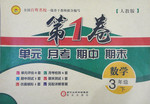题目内容
This past Thanksgiving Day the boss of the company I work for decided to serve a Thanksgiving meal for the poor. I couldn't ________ this and decided that I wanted to ________ ! I could deliver foods and send out my smile card.
I arrived at my ________ around 11 and found a line of families waiting outside the doors. I wasn't sure ________ I wanted to give my card to because there were so many people there ________ I knew I wanted to give it to a mother.
I served ________ table plates of turkey with all the fixings and slices of pumpkin pie for desert. Everyone was so happy and honestly seemed ________ for what my co-workers and I were doing.
At my last ________ there was an older lady with about eight kids. She looked tired, but ________ that her children were ________ . Smiling at her, I exchanged a few words ________her and knew that she was a foster mom(养母) and that ________ she would have liked to cook at home she couldn't __________it because of the size of her family. She then thanked me for ________ time with my family to serve hers.
She burst ________ a smile and gave me a hug__________ .I gave my smile card to her.
At the end of the day I didn't think about how I gave up time with my ________ to do this because I got so ________ out of this special and unforgettable experience, ________ made me so incredibly thankful for ________ I have and I now realize it is important to give back, and not just on the holidays.
1.A. escape B. accept C. forget D. miss
2.A. ignore B. sign C. help D. take
3.A. factory B. company C. home D. farm
4.A. what B. when C. who D. where
5.A. but B. so C. and D. while
6.A. an amount of B. a number of C. the series of D. the number of
7.A. thankful B. regretful C. confused D. amused
8.A. round B. table C. turn D. desk
9.A. surprised B. upset C. happy D. curious
10.A. sitting B. singing C. laughing D. eating
11.A. with B. for C. about D. over
12.A. in case B. as though C. even if D. so that
13.A. pay B. think C. succeed D. afford
14.A. putting up B. giving up C. taking up D. making up
15.A. in B. out C. onto D. into
16.A. hardly B. slightly C. carefully D. immediately
17.A. family B. friend C. boss D. co-workers
18.A. much B. little C. many D. few
19.A. as B. which C. what D. it
20.A. something B. somebody C. everything D. Everybody
 第1卷单元月考期中期末系列答案
第1卷单元月考期中期末系列答案

 h a place. “What’s the difference?” the farmer said angrily. “If I had planted the tree near the , passers-by (行人)would have stolen the fruit. If I had planted the tree in one of my fields, my neighbors would have come at night and _ some of the apples! If I had planted it near my house, my own children would have taken the . No matter where I plant the tree, I can’t have to enjoy the apples. So there is no difference where I planted it.”
h a place. “What’s the difference?” the farmer said angrily. “If I had planted the tree near the , passers-by (行人)would have stolen the fruit. If I had planted the tree in one of my fields, my neighbors would have come at night and _ some of the apples! If I had planted it near my house, my own children would have taken the . No matter where I plant the tree, I can’t have to enjoy the apples. So there is no difference where I planted it.”